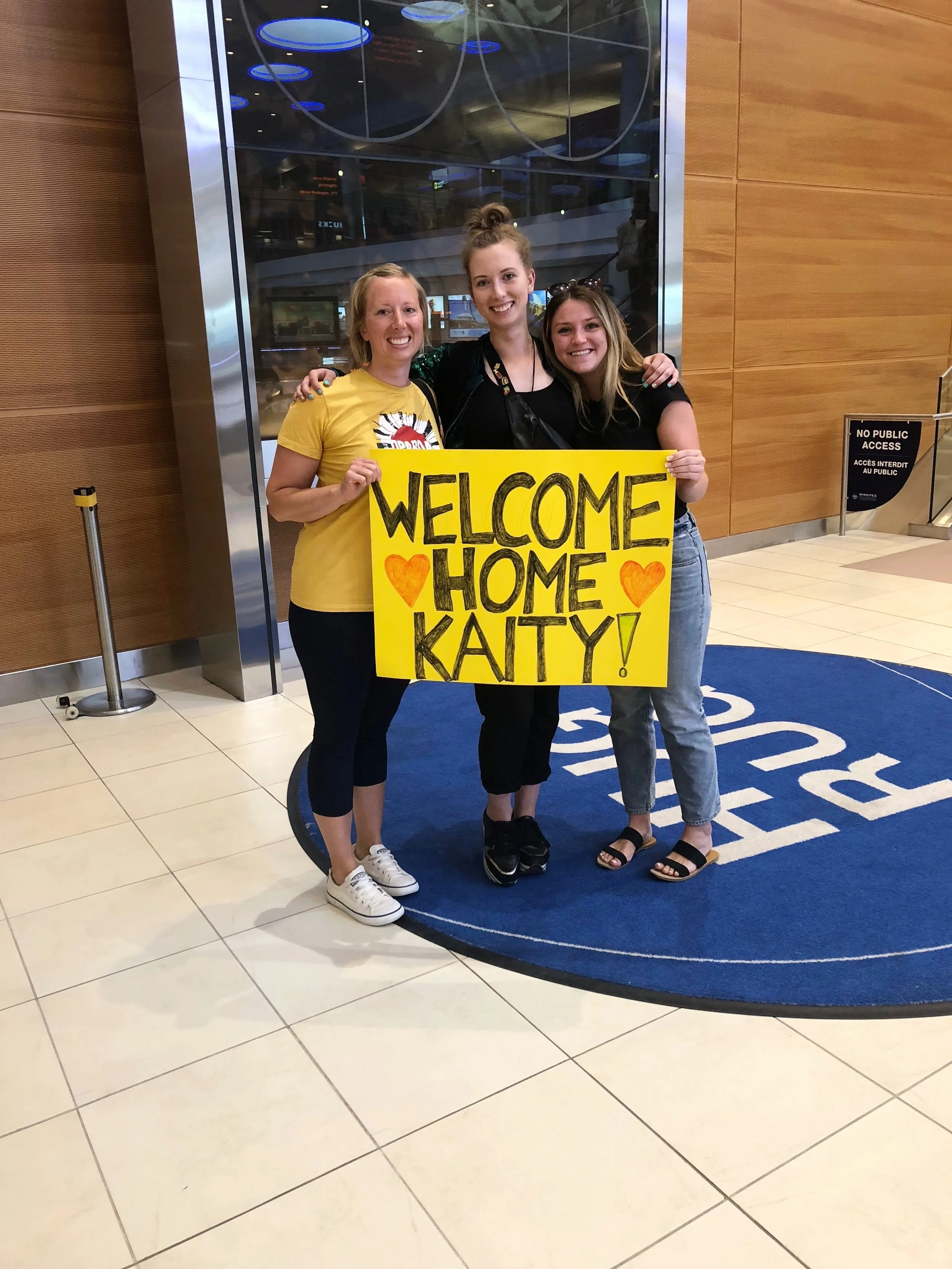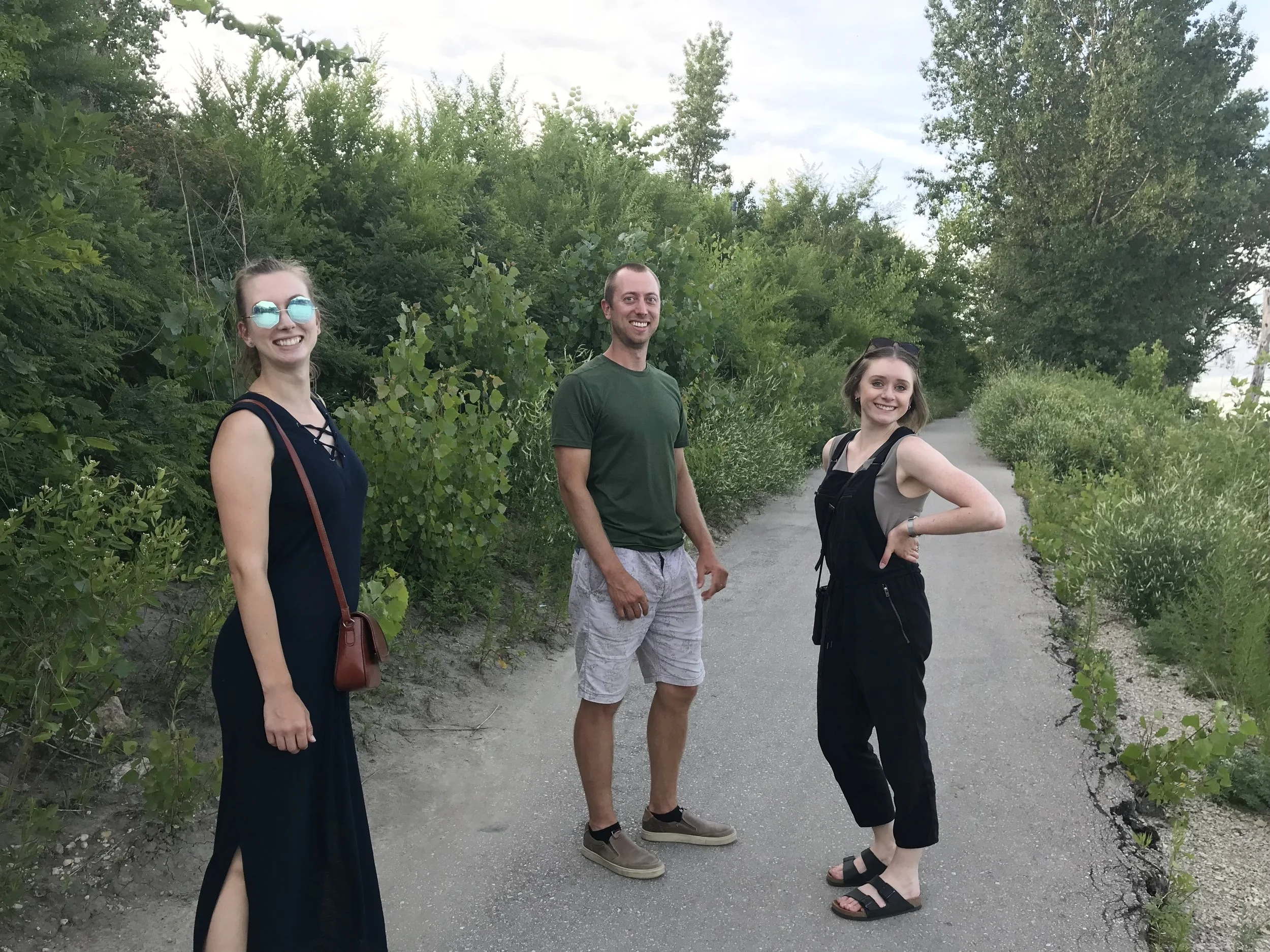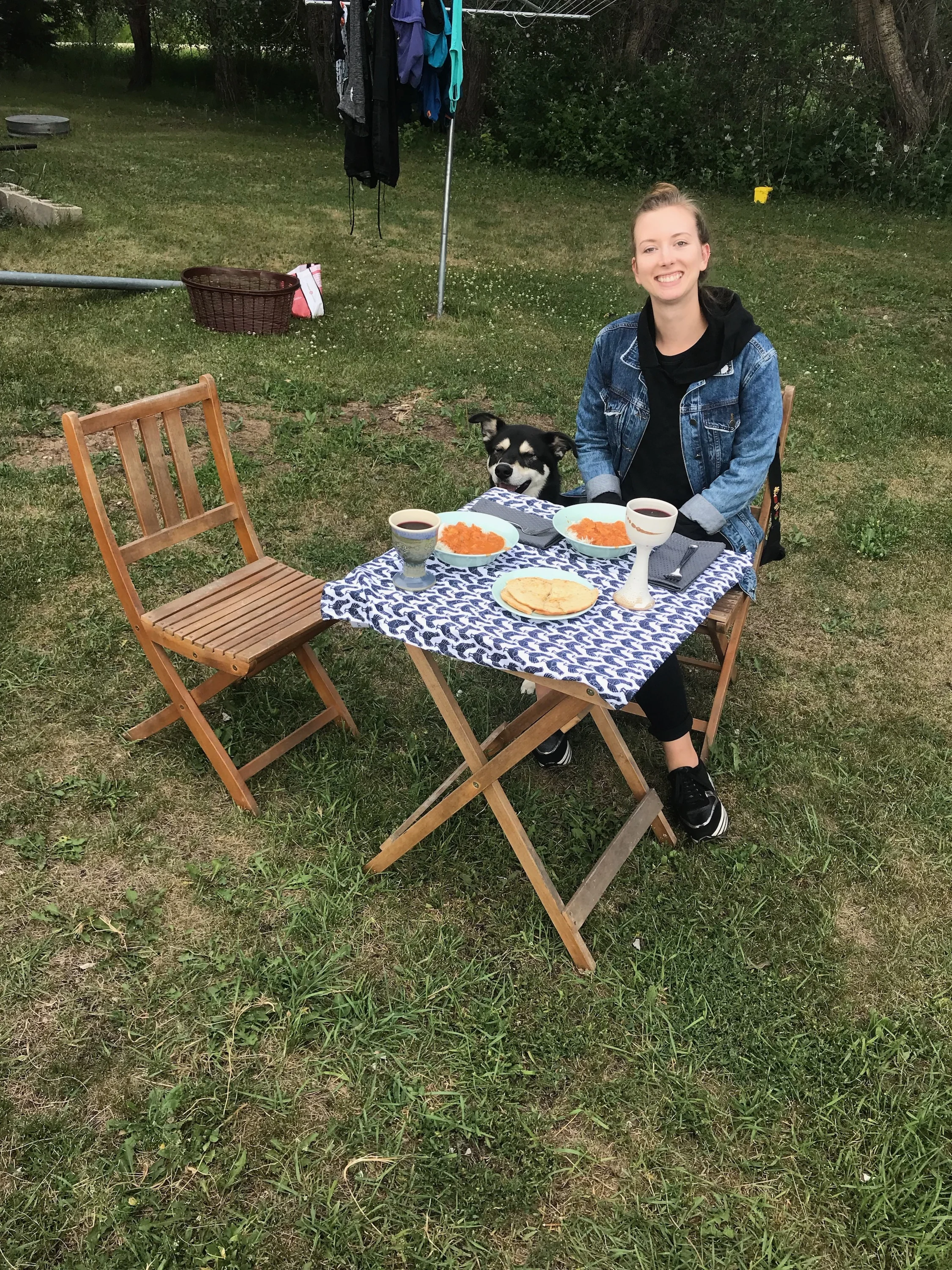Life after living abroad
I felt like a superstar as I came down the escalator in Winnipeg's airport.
There they were, my family and friends, standing on the hug rug, some wearing shirts they bought in Ukraine, holding a sign saying WELCOME HOME KAITY!
Getting closer and closer, going down the escalator, the smiles grew bigger (didn't know that was even possible), the tears started flowing (people on the escalator turned around to see what the deal was), and then it happened. We were reunited.
I successfully avoided real-world Canada for a week by escaping to my parents' cottage and hitting up Winnipeg Folk Festival. But avoidance only works so long.
I started a job a week after I got back. I was busy rehearsing with Troyanda Ukrainian Dance Ensemble for upcoming shows. I visited with family and friends, catching them up on my year.
It was good to be distracted from the fact I was no longer in Ukraine, a country I felt so connected with that it truly felt like home.
It's safe to say I've brought a lot of my Ukrainian lifestyle back with me, which was evident as I walked off the airplane in my sequined green tracksuit jacket and platform runners with a fanny pack across my body. But because of this, because I'm so used to how things were, adjusting to life in Canada has been difficult.
So what have been some of the major adjustments to life in Canada?
It is not socially acceptable to yell "GIRL!" or "BOY!" to get a server's attention. Also, the language barrier-free way of asking for a cheque by pretending to write in the air is not a thing in Canada. Nor is snapping your fingers to get attention. Really, the whole customer service scene is completely different in Canada versus Ukraine.
There is complimentary water everywhere. During one of my first restaurant experiences in Winnipeg, the server brought me a glass of water as soon as I sat down. "Oh," I thought, "this must be a fancy restaurant, with free water and all." Then I remembered I am in Canada. I guess I can stop carrying my water bottle absolutely everywhere. Another adjustment: in general, you don't have to ask if the tap water is safe to drink.
Another major adjustment: Walking/public transport isn't the main mode of transportation. Except when you're with my family and we walk from South Osborne to The Forks on a trail we didn't know existed.
At stores and restaurants and cafés, the workers all seem to want to be my best friend. They ask how I am, as if we are old friends catching up. They compliment me on what I'm wearing. They say hello to me without me saying hello to them first. At a restaurant, they will check on you every five minutes to make sure everything is OK. They bring you the bill without you having to ask. I was so used to the Ukrainian customer service — slipping in somewhere with no one noticing me and staying as long as I like with no one coming to me until I ask for the cheque. I mean bill. I forgot that saying "bill" is more common.
It is highly likely the people around you understand the language you're speaking. My friends and I got away with a lot while in Ukraine. We got into the bad habit of when we were with someone who didn't know much English, we'd have side conversations with each other. In English. And the other person wouldn't know what we were saying. We didn't say anything bad, but seeing as we weren't fluent in Ukrainian, it was so easy to resort to English speaking. It did come in handy if we needed to figure out a way to leave or something and we could do so by quietly talking under our breath. Since I've been back, I've noticed myself say things thinking only the person I'm saying it to will hear me. Then when someone else responds, I remember, right, people speak the same language as me.
There seems to be a difference in doors between Ukraine and Canada. I don't know if this is actually true. But I do know that during my first few weeks in Canada, I noticed I was always pushing when I should have been pulling and vice versa or was reaching for the handle on the wrong side of the door.
Everything closes so early in Canada. In Winnipeg, the end of a night is around 2 am. That's just the start in Ukraine. At 2 am, you're heading to the next club or grabbing something to eat or really doing anything BUT going home. Besides the nightlife scene, the same applies to restaurants and cafés. So often in Ukraine, I'd head to a coffee shop in the evening to do some writing or Ukrainian homework. I'd go around 7 or 8 and stay for a few hours before calling it a night. Here, the places I would want to do the same in close by 6.
Like a true Ukrainian, I try to spend as much time as possible outdoors and with my family, like during this fabulous dinner my sister served me one evening in her back yard. Photo by Breanne Vitt.
People don't use public spaces to the max. In Ukraine, even in small cities, people are always out and about in parks, on the streets, in restaurants. This difference was made so clear the other week when I was with my friend and her mom. We wanted to grab something to eat, but even though we were downtown, there weren't many places open. It was only about 8 pm. We finally decided on a spot, but couldn't sit on the patio since they had their dog. We got takeout from there instead and had a lovely outdoor dinner at a small park that had chairs and tables for the public to use. But as we were finishing up our food, people came to take away the chairs and tables. No wonder people don't spend more time in public spaces. The resources welcoming people just aren't there.
Impromptu ice cream trips with my sister have helped me settle into Canada.
Last minute plans are frowned upon. Ukrainians go with the flow. If plans change, they don't make a fuss. If someone asks to hangout in one hour's time, they don't complain that they should have planned ahead of time. If it works, they go meet up. If it doesn't, they don't. But in Canada, people plan for weeks, months even, in advance. For some things, I get it. For other things, I say just wing it a bit more, Canada.
Hugging when saying hello/goodbye is reserved for family and very close friends. Ask anyone who knew me pre-Ukraine, and they would say I am not a hugger. But oh how I've changed. Hug people if it's your first time meeting them. Hug people if they are the artistic director of the ensemble you're dancing with. Hug people, the end. Well, in Ukraine at least. In Canada, it's not socially acceptable to hug, say, your new boss after the second day of work as you say goodbye. This is something I've had to intentionally remind myself.
Personal space exists in Canada. Once a big fan of conversations at a minimum of four feet apart, I got used to the up close and in your face way of talking in Ukraine. How am I supposed to know if you're talking to me if you're not close enough for me count the number of eyelashes you have? Ukrainians also talk a whole lot quieter than Canadians. They basically whisper. So that was fun, not only trying to translate the language but also putting your hearing to the test.
) is not how you text a smiley face, and people don't understand when you insert random Ukrainian phrases into your English. I find myself messaging someone and add some ))) here and there, which is the Eastern European version of :). (They have so many letters in the alphabet that the keys take up some of the spots of where punctuation would go, so it's too complicated to type :) all the time. At least that's what I've heard. Other people just say a single bracket is quicker to type.) Or sometimes I'll be speaking in English and I'll be about to add in a Ukrainian phrase, and then I remember that the people I am with will not know what I'm staying, so I stick to plain old English.
This list is ever growing, as I continue to adjust to life in Canada and realize how different Ukraine is.
Both countries have their pros and cons, but right now, Ukraine has my heart. I can't wait to get back there, visiting friends and family (stay tuned for a post about the time I took a bus to my family's village), exploring cities I lived in and those I didn't, and becoming more connected to my culture.
The whole crew came to watch me perform at Folklorama Aug. 8.
Until then, I will continue to be thankful for moments when I feel like I'm in Ukraine. Like last weekend at Canada's National Ukrainian Festival. Or last week at the Ukraine-Kyiv pavilion at Folklorama. Or when random Ukrainian accounts follow me on Instagram.
I have many more stories to share about my time in Ukraine, about dancing and family and culture and cities, so keep following along here.






